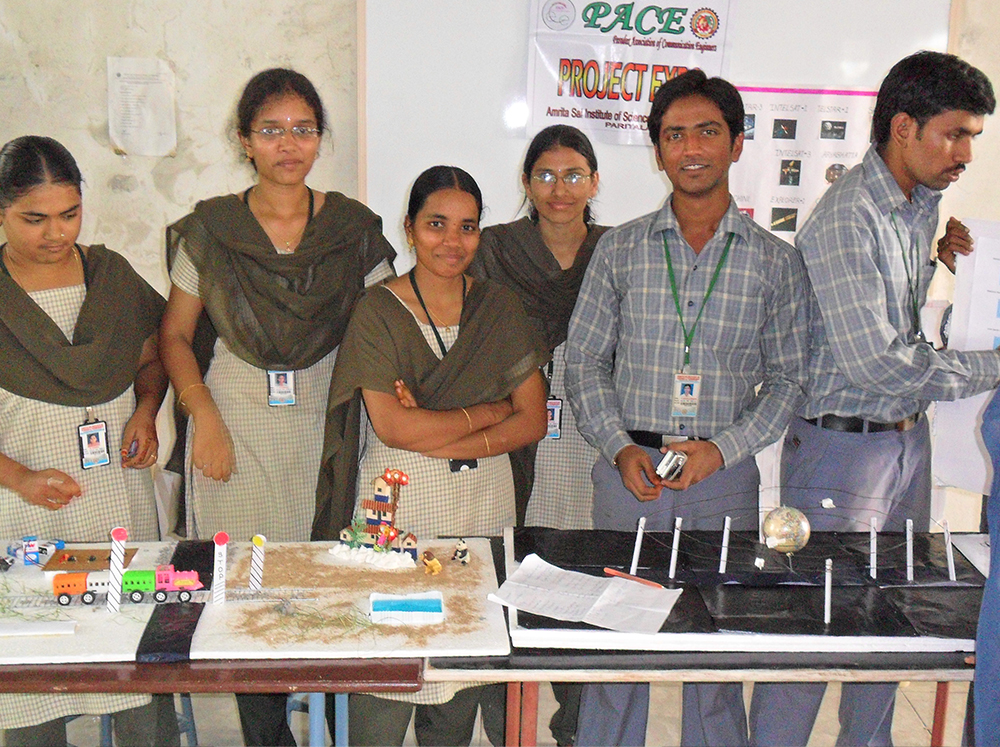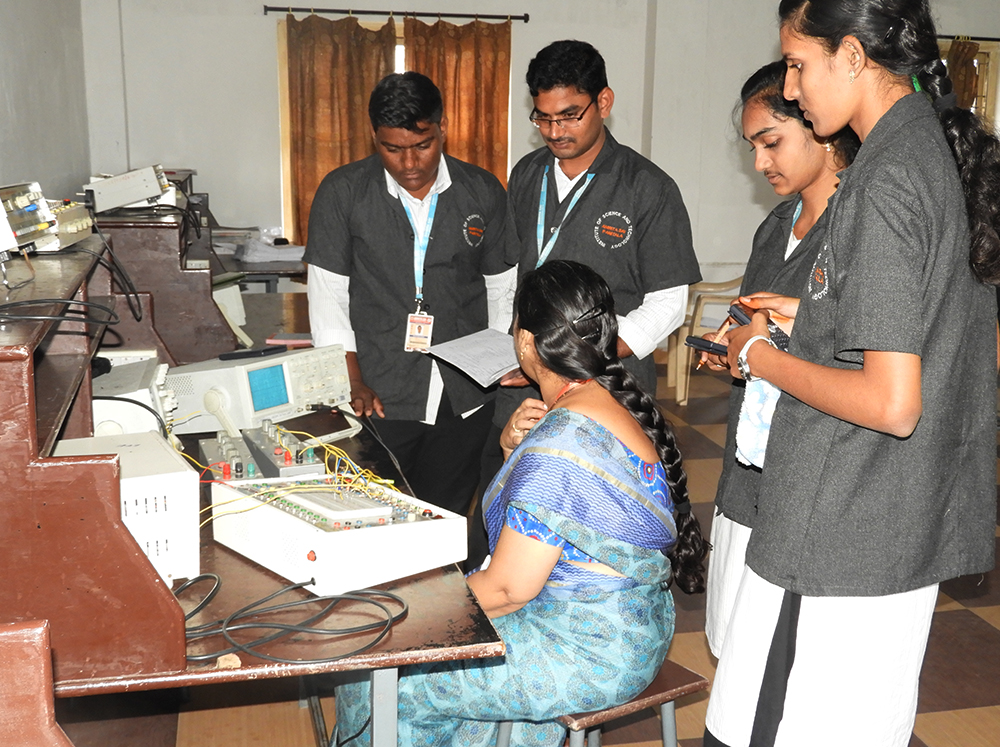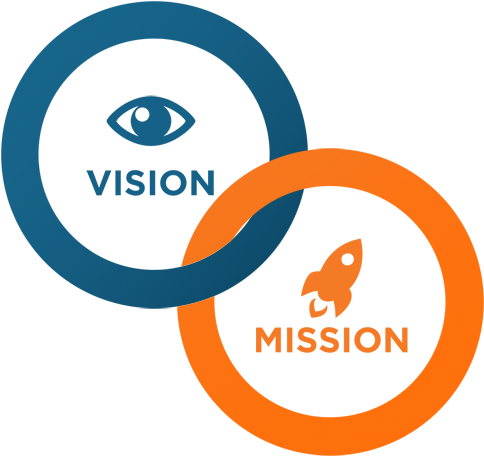Amrita Sai is the best college for electronics engineering that guides students in all necessary perspectives to lay the foundation for a bright career. The department of electronics and communication engineering organizes seminars, guest lectures, and workshops by eminent personalities of the industry to gain knowledge in their respective fields. We shape up our students and make them strong in various fields. Apart from their academics, we also help them in participating in different events, write research papers, etc. These extracurricular activities are going to be a big part of their personality development.


With well-equipped laboratories in the department of ECE, our teaching faculty give the best insights to the students to master the subject. Our faculty implement an effective and interactive way of teaching methodology and provide necessary guidance to the students. The ECE department has an excellent laboratory infrastructure that facilitates the students to incorporate the theoretical knowledge and make the best use of the laboratory.
Students who completed their graduation in electronics and communication engineering have a bright future in the manufacturing of communications and broadcast systems. ECE engineers build advanced communication facilities and develop various controls and communication systems. Students with ECE graduation can avail jobs in service organizations, such as data communication, broadcasting, entertainment, modern multimedia firms, research and development, and also in manufacturing industries. One can also have a wide range of job opportunities in civil aviation, defense, telecommunication, railways, and other government sectors.

To create efficient engineers proficient with the domains related to Electronics and Communications Engineering for a successful career in the service of society.
To be able to develop sustainable solutions to problems related to Electronics and Communications Engineering as an individual or as a part of a team to maintain professional ethics, experimental learning, collaborations for Research and Entrepreneurship


| S. No. | Department | Name of the Faculty | Designation | Qualification |
|---|---|---|---|---|
| 1 | ECE | Dr. V. RAMESH BABU | Professor | M.Tech., Ph.D |
| 2 | ECE | Dr. SAMIRAN CHATTERJEE | Professor | M.Tech., Ph.D |
| 3 | ECE | Dr. D.DAYAKAR RAO | Professor | M.Tech., Ph.D |
| 4 | ECE | Dr V.GAJENDRA KUMAR | Professor | M.E., Ph.D |
| 5 | ECE | Dr. B. JAYA CHANDRAN | Professor | M.Tech., Ph.D |
| 6 | ECE | Dr. K. MURALI BABU | Professor | M.E., Ph.D |
| 7 | ECE | Dr. VASNTHA SWAMINATHAN S | Professor | M.E., Ph.D |
| 8 | ECE | Dr S V NARESH | Professor | M.Tech., Ph.D |
| 9 | ECE | Dr. R.DINESH KUMAR | Associate Professor | M.E., Ph.D |
| 10 | ECE | Dr. S. SIVALINGAM | Associate Professor | M.E., Ph.D |
| 11 | ECE | Dr. T. KRISHNAMOORTHY | Associate Professor | M.E., Ph.D |
| 12 | ECE | Dr. D.HEMA | Associate Professor | M.Tech., Ph.D |
| 13 | ECE | Dr. DAMODAR REDDY A | Associate Professor | M.E., Ph.D |
| 14 | ECE | r. A. VIJAYALAKSHMI | Associate Professor | M.E., Ph.D |
| 15 | ECE | Dr.K.PHANI SRINIVAS | Associate Professor | M.Tech., Ph.D |
| 16 | ECE | B. RAMARAO | Assistant Professor | M.Tech |
| 17 | ECE | B. BALAJI | Assistant Professor | M.Tech |
| 18 | ECE | K. CHANDRA RAO | Assistant Professor | M.Tech |
| 19 | ECE | G.VENKATA RAO | Assistant Professor | M.Tech |
| 20 | ECE | G.LATHA | Assistant Professor | M.Tech |
| 21 | ECE | J. NAGA PRATHIMA | Assistant Professor | M.Tech |
| 22 | ECE | K. NARESH | Assistant Professor | M.Tech |
| 23 | ECE | CH. SRIHARI | Assistant Professor | M.Tech |
| 24 | ECE | V. SWARNALATHA | Assistant Professor | M.Tech |
| 25 | ECE | P BHARATH | Assistant Professor | M.Tech |
| 26 | ECE | A. ENOCH | Assistant Professor | M.Tech |
| 27 | ECE | B. ANUSHA | Assistant Professor | M.Tech |
| 28 | ECE | V.SRINIVASA RAO | Assistant Professor | M.Tech |
| 29 | ECE | M. VENKATA KRISHNA | Assistant Professor | M.Tech |
| 30 | ECE | T. PUSHPALATHA | Assistant Professor | M.Tech |
| 31 | ECE | P. SREEMANTA | Assistant Professor | M.Tech |
| 32 | ECE | J. MALLIKARJUNA RAO | Assistant Professor | M.Tech |
| 33 | ECE | B. ANJANI KUMAR | Assistant Professor | M.Tech |
| 34 | ECE | V. NARAHARI | Assistant Professor | M.Tech |
| 35 | ECE | G. NALINI | Assistant Professor | M.Tech |
| 36 | ECE | M MADHAVI | Assistant Professor | M.Tech |
| 37 | ECE | K RAVI BABU | Assistant Professor | M.Tech |
| 38 | ECE | V. SANDHYA | Assistant Professor | M.Tech |
| 39 | ECE | B. ARUNA KUMARI | Assistant Professor | M.Tech |
| 40 | ECE | K. ANURADHA | Assistant Professor | M Tech |
| 41 | ECE | CH.SREE LAKSHMI | Assistant Professor | M.Tech |
| 42 | ECE | ABDUL AZEEZ | Assistant Professor | M.Tech |
| 43 | ECE | M NAGA RANI | Assistant Professor | M.Tech |
| 44 | ECE | B.SUNEETHA | Assistant Professor | M.Tech |
| 45 | ECE | MD SHANNU | Assistant Professor | M.Tech |
| 46 | ECE | N VISRANTHAMMA | Assistant Professor | M.Tech |
| S.NO | Regd No | Name of the student | Event name | Organization/College | Prize |
|---|---|---|---|---|---|
| 1 | 17-432 | Pravallika | Technical-Quiz | ALIET | Participation |
| 2 | 17-4C1 | P Vinay Kumar | Poster Presentation | SRKIT | Second |
| 3 | 17-4C1 | P Vinay Kumar | Poster Presentation | KLEF | First |
| 4 | 17-4C1 | P Vinay Kumar | Poster Presentation | LBRCE | First |
| 5 | 18-486 | N.Ramya | Technical-Quiz | MVR | Second |
| 6 | 18-497 | N.Sravani | Technical-Quiz | MVR | Second |
| 7 | 18-491 | N. Sumithra | Technical-Quiz | MVR | Second |
| 8 | 18-489 | N.Navya | Technical-Quiz | MVR | Second |
| 9 | 18-481 | Md. Bashirun | Technical-Quiz | SRKIT | First |
| 10 | 18-480 | M. Arpitha | Technical-Quiz | SRKIT | First |
| 11 | 18-4A0 | P.Bhargavi | Technical-Quiz | SRKIT | First |
| 12 | 18-4A8 | P.Rahul | Technical-Quiz | SRKIT | First |
| 13 | 18-469 | K Dinesh Surya Sai | PPT | MVR | Second |
| 14 | 18-476 | M Divya Sri | PPT | MVR | Second |
| 15 | 18-4A1 | P Divya | PPT | MVR | Second |
| 16 | 18-4C9 | S Divya | PPT | MVR | Second |
| 17 | 18-480 | M. Arpitha | Poster Presentation | MVR | Second |
| 18 | 18-4A0 | P.Bhargavi | Poster Presentation | MVR | Second |
| 19 | 17-447 | Kalyani | PPT | ALIET | Participation |
| 20 | 17-445 | J Bhavya Sai Sri | Technical-Quiz | ALIET | Participation |
| 21 | 17-450 | J Ratan Deepika | Technical-Quiz | ALIET | Participation |
| 22 | 17-446 | J Sri Lakshmi | PPT | ALIET | Participation |